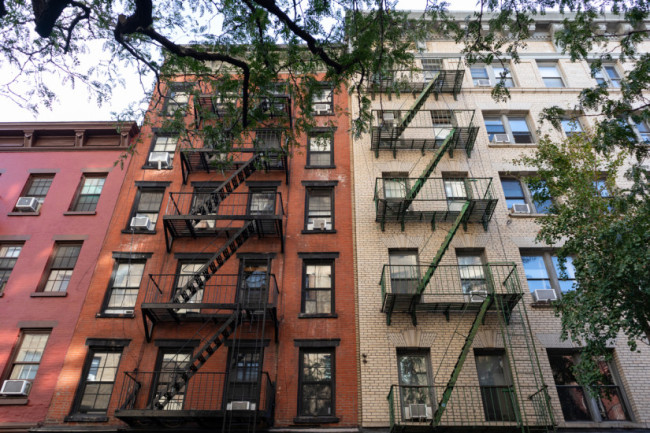How do I show proof of income to rent a NYC apartment if I’m self-employed?

Landlords may require more in financial assets and a higher credit rating since your income can fluctuate.
iStock
I’m self-employed and I’m getting ready to rent a New York City apartment on my own. How do I show proof of income to a landlord?
There are a few ways that you can show proof of income to rent an apartment in New York City as someone who is self-employed, but your landlord might want to see more financial assets and a higher credit rating because your salary can fluctuate month to month. NYC landlords typically want renters who earn an annual salary of at least 40 times the monthly rent.
How do you know if you're likely to make the grade? Adam Frisch, senior managing director of leasing at Lee & Associates, says renters with good credit, a reasonable income history, and who have been in business for at least two years can make a case for themselves. While the documentation required may vary, depending on the landlord, you can expect to provide a credit check and 1099 forms from at least two years, and bank statements for two to four cycles, as well as some forms of identification.
In addition, since you won’t be able to provide a traditional letter of employment, you should get a certified letter from your accountant that verifies your income to show that your finances are sufficient to rent the apartment. You can also have your accountant outline your cash assets, which might help your landlord approve your application.
[Editor's Note: Realty Bites tackles your NYC rental questions. Have a query for our experts? Drop us an email. We respect all requests for anonymity.]
A landlord’s decision on whether or not to approve your application can also depend on the type of business that you own. If you own a business that might not seem sustainable, or a business that could easily be impacted by Covid-19, a landlord might feel less comfortable. The same goes if your business has been operating for less than two years.
Your credit is very important when showing proof of income as a self-employed person. Frisch says that he would take a hit on a self-employed person’s credit report more seriously than someone who has a steady income.
If your landlord is on the fence about renting the apartment to you as a self-employed person, you can also try to negotiate. You can offer to pay higher rent, sign a longer lease, or even give up some of the concessions being offered, Frisch says.
Keep in mind that paying extra security deposit is illegal as a result of last year’s changes to the rent laws. In the past, landlords would take a larger deposit upfront to offset the risk of a tenant with shaky finances.
If your credit or finances don’t meet a landlord's threshold, you can use a personal guarantor or a guarantor service like Insurent (a Brick Underground sponsor). To qualify for Insurent as a self-employed person, you need to submit either a copy of your tax returns from last year, an accountant’s letter with a copy of your driver’s license or passport, or a copy of your bank/brokerage statement with a form of ID. Your cash assets must be a minimum of 50 times the monthly rent, and you need to have decent to good credit.
Frisch also recommends that you don’t come across as entitled when applying to an apartment as a self-employed person. Be respectful and convey to the landlord that you are interested in trying to work with them. Some landlords are more flexible right now because they likely have more vacancies due to Covid-19, but it doesn’t mean they will approve you without proper proof of income.
You Might Also Like



























